Top 6 Virtues of a Spiritual Seeker
We've talked about how discernment is the most critical skill to have, that is, knowing the difference between the Self and not-Self. The difficulty is that we ... read more...mix the Self with the not-Self. Indeed, the identification of the Atman (real Self) with the mind leads us to believe that we are the mind. You believe you are whatever your mind believes you are. This is a major issue, the most serious issue. That is why the most vital qualification is discrimination. You must observe or disconnect from your thoughts. Indeed, your prior thoughts are the source of your current existence. This life, what you are experiencing today, is the karmic result of your previous thoughts. Detachment from your ideas is how you start to work your way out of samsara, to avoid making the same mistake, the same pattern of thinking that brought you here in the first place, that caused you pain. That is why these are the requirements for liberation, liberation from pain. In other words, these criteria provide the conditions for you to experience your existing level of happiness and completeness. First and first, you must be discriminating. This is the Self, and this is my thinking. It is exceedingly difficult to do this because you have believed for years and years, lifetimes and lifetimes, that you are the mind. You must gather a lot of sattva, purity, before you realize, "Oh, it's my mind." As a result, you've been observing your mind's routines for a long time. You must separate yourself from your thinking. Detaching from the mind is part of the meditation practice. This post is about Shad-Sampat, or the sixfold virtues, or mental characteristics that you can gain. The concept is that you, Satchitananda, are already the Self. In truth, you cannot find happiness outside of yourself. You cannot develop yourself by looking outside of yourself. The intellect cannot improve on its own. In actuality, the goal is to make the mind more sattvic so that it can reflect the Self. The path is about purifying the mind and caring for the mind in order to see the Self that is already present. When you practice yoga, you will be endowed with these six attributes. Yoga is a technique that can help you develop these traits so that your mind can see the Self.
-
Sama is a Sanskrit word that implies mental tranquillity. It is the first virtue you should acquire. As a yoga instructor, you will face pupils that are extremely restless and constantly shifting positions. So, what does the yoga instructor or Yoga Health Educator advise these people to do? What do you tell someone who comes to you because he or she is really up and down? Meditation and introspection? These are lofty objectives. They must take action before that. The answer is that they must do asana and pranayama. That's all there is to it. Why? They slow down as they do asana. Everything comes to a halt. They slow things down by coordinating the body and the breath. It is the same with pranayama. They take a breather. They cleanse the nadis and bring the prana back into balance. That already gives them some insight, vision, and knowledge about the inner workings of their own mind. This provides them with a sense of calm and tranquillity. Furthermore, the conventional bhakti yoga teaching teaches them skills for emotional management. Emotions stir up the mind and make it shaky. That is why managing, or sublimating, emotions are vital to quiet the mind.
Our actions are guided by our thoughts, while our thoughts are influenced by our emotions. Our thinking is just used to excuse our feelings. According to Swami Sivananda, emotions are prevalent in this era. Pranayama exercise helps to quiet the emotions, and chanting is required to communicate Divine Love. In bhakti yoga, practicing love implies practicing unconditional love rather than an attachment. When you practice unconditional love, you relax and your mind relaxes. That's all there is to it. When the mind settles down, you may perceive your true self. Bhakti yoga practice can help you with this. Because we are isolated from our source, from ourselves, from our true nature, we feel lonely, abandoned, and in the dark; we feel separated from Divine Mother and Divine Father; we feel separated from everything, and we have to live with people we don't understand. As a result, it is quite tough to love them. So, develop serenity and peace of mind. Some people appear peaceful on the outside, but on the inside, they are raging like a tornado. When you exercise tranquillity, though, your mind is actually silent. The mind's whirling must stop before you may rest in tranquility.
In the Raja Yoga Sutras, Patanjali Maharishi states unequivocally that it is impossible for a mind to understand another mind; it is also difficult for the mind to understand itself. No matter how many concepts you have in your head, they will not solve the problem that you have in mind. It is literally impossible for you to use your thinking to understand another person's mind. "One talks duck, one talks chicken," as the saying goes in Vietnamese. Ducks and hens are conversing. It is impossible for them to understand each other. Because the mind is already so tough for you to understand, this is why we have so much interpersonal conflict. Then you try to understand someone else's thinking using that mind, which is impossible. That is why you must look inward to comprehend your own thoughts. You will be able to glimpse another person's thoughts by calming your own mind and putting light into it. This is not because you can see another person's mind through your own. The light of the Atman shining in your mind helps you to see the Atman in the mind of another.
You must first concentrate on your own inner calm. Without that, there is no way to see the Self, no way to be fully joyful. "Instead of peace of mind, we have bits of mind," Swamiji stated. This implies you project the conditions for happiness, the criteria are met, and you have a little moment of tranquility. You strive very hard to fulfill those standards so that you might enjoy another little piece of peace. And so you keep going, work out another contract, fulfill it, and win another small piece of tranquility. We have fragments of mind in this way, but no peace of mind. Because peace of mind requires wisdom, a certain level of freedom, and absolute comfort within oneself and in all situations.
You will not enjoy peace of mind if you constantly monitor your life to see if it conforms to your predetermined conditions. That is the unpleasant reality for the majority of us. It's difficult for us to let down our guard and be vulnerable since we've been hurt for a long time. And, you know, we tend to blame our pain on others. We've been doing it for a long time, falsely attributing our pain to someone else and thus retaining that memory and hoping to be rid of it. However, this is not possible. Similarly, in the Vedantic analogy of the "rope and snake," you continuously perceive the "snake" because the serpent is in your mind; you are always projecting the image of the hurtful snake outside, superimposing the snake on a piece of "rope," and saying, "Oh, that snake is going to bite me!" You flee, but you see the snake again. Because it's already in your head. That's why you keep repeating your unhappy patterns. So, even though "sama" is the first virtue, obtaining serenity takes a long, long time.
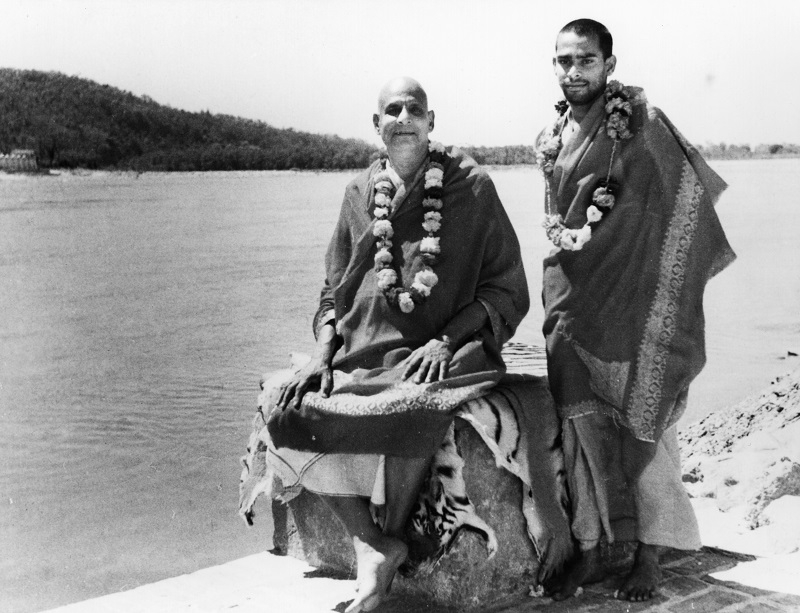
sivanandayogafarm.org 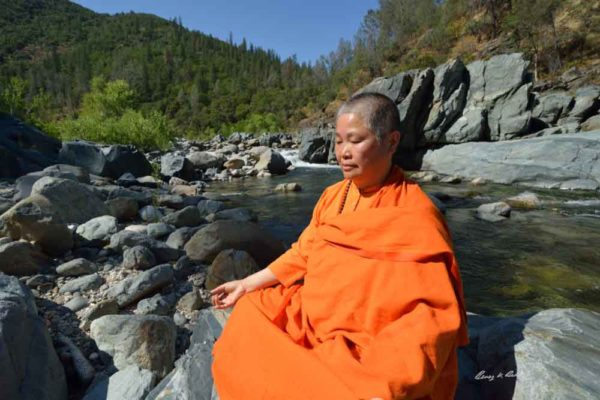
sivanandayogafarm.org -
Dama is a Sanskrit word that means "control of the senses." Adi Shankaracharya, a Vedantic guru, stated it plainly. He claims that if you are constantly troubled by your senses, you do not enjoy peace of mind. It is something you can improve. You are not qualified if you have any form of addiction or uncontrollable sensual yearning. That is why you must go and practice very hard on sensory regulation. Why is sensory control so important? We cannot continue to believe that life is all about sensuous pleasure if we have discriminating against. We can't keep thinking that whatever we see outside is real. We can't keep thinking that this life of the five senses is the only existence because yoga and Vedanta say "no," there is an inner life. We need to investigate our inner lives.
Yes, this world is a mental construct that exists to distract you. This sensory life exists to distract you. So, if you can regulate your senses, you will have fewer distractions, be able to turn inside and realize your Self.
sivanandayogafarm.org Sivananda Yoga Farm -
Uparati is the purpose of internal reflection. That signifies you have an inner existence and can see your own Self. Because all answers come from within, you would have to sort yourself out from within. If you are always craving anything outside of yourself, you will be unable to turn within. Uparati is withdrawing away from the outside world so you may sort yourself out from within. It is the control of the senses; it is associated with the withdrawal of the senses. Pratyahara is the phase that precedes meditation in yoga. Basically, you won't be able to meditate well if you can't turn inward.
What occurs when you practice asanas and pranayama? You're beginning to withdraw. That's the way it works. Because asanas regulate prana and make you less susceptible to prana imbalances and the pull of the emotions and senses. When you begin to practice, you begin to see the Self because you are turning inward. When you practice savasana, you turn inward. You've seen a glimpse of this type of inner tranquility.
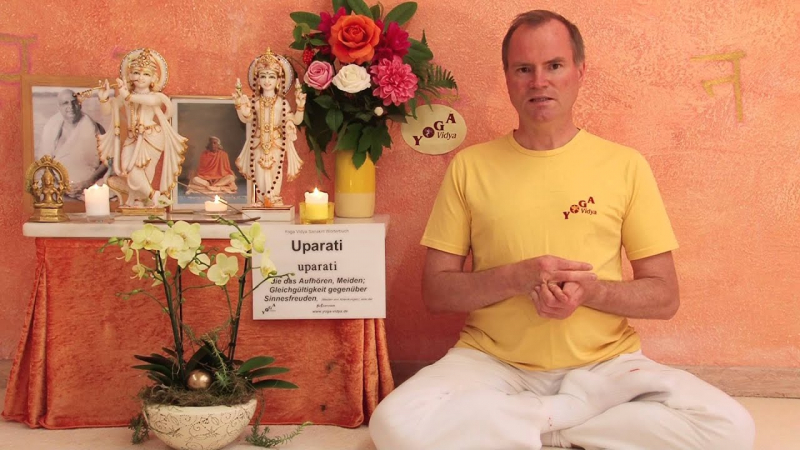
Yogawiki - Yoga Vidya Sivananda Yoga Farm -
Titiksha is the Sanskrit word meaning endurance or forbearance. This is critical because you can go deep and do meditation or yoga, but you may not experience the happiness that is promised.
On the contrary, you may be experiencing back discomfort, neck ache, or feeling extremely bored. When you begin to meditate, you have no idea what you're doing. That is why patience and endurance are essential. You must adhere to the practice at all costs. That is what the yogi attempts to practice at first. Of course, if you have back discomfort, you must move a little bit; nevertheless, you do not torture your body. There must be some moderation, but if you abandon your practice due to difficulty, you will lack the required qualifications to sift through your thoughts and discover your Self. That is why you must withstand the challenges caused by your own body, mind, and emotions.
According to the Bible, there are various types of suffering. Suffering can result from external factors (fires, floods), the mind and its interactions with other people, and your own existence in a changing body. Pain and discomfort might be present at all times. According to Ayurveda, Vata aggravation causes pain. Western medicine is unable to comprehend this since it treats symptoms. Western medicine cannot explain why pain appears in diverse sites. Someone with this type of pain is inclined to worry, and the more he or she worries, the more anxiety is created, which leads to more moving pain. They will not have the peace of mind to turn inward.
You'd have to work on your strength and endurance, as well as "bear insult, bore damage." Mental pain can exist. Someone speaking the wrong thing about you is painful; hearing people talk rubbish is painful, and eating food that your body and mind cannot digest is painful. Everything can be excruciatingly unpleasant.
Why is it necessary for the seeker to learn to endure? The seeker of Truth wants to be free of all suffering. The seeker is aware of the mind's tendency to oscillate and its proclivity to react to external stimuli. As a result, the seeker would have to persevere. To endure implies recalling the Self in the midst of the mind's ups and downs. The pain is present, but it is not new. As a result, while you are suffering, you recall, "I am the Self."
People in the pandemic are in a lot of pain and trouble these days because their entire cities and countries are on lockdown. When I communicate to them about Self-remembrance, they praise me and do not dismiss it as unrealistic. Even if they are in pain, they have some wisdom within them. However, hearing someone declare, "The pains are not genuine. You are genuine. Your immortal Self exists. In reality, you are content." They are grateful. As a result, even while our minds scream the deception, we must constantly reiterate the truth to ourselves. Forbearance involves remembering the truth in order to bear the karma.

OM Yoga Magazine Sivananda Yoga Farm -
We must cultivate faith. We feed ourselves doubts when we lose faith. Some folks have no faith at all. Most people suffer greatly because they lack faith. People who have faith in challenging conditions have a higher quality of life, but those who do not have faith believe that reasoning can explain everything. When their logic fails to explain something, they believe the world is falling around them. In some ways, the fact that everything is collapsing is a positive thing. This teaches you that the intellect is incapable of understanding the big picture.
How do we foster faith? When we don't know what to do and say, "God knows," you might also say, "I yield to the wisdom of the cosmos; there must be a reason why things are the way they are." You may also say, "I have trust that everything will all work out."
3 Types of Faith
- Faith in one’s own Self
Self-reliance, or faith in one's Self, implies that we rely on our own inner strength, which resides inside us, rather than on an ego-self. Fear exists when we do not understand the Truth about ourselves (the Atman). Until we gain such an understanding of the Self by direct experience, we must rely on faith to move forward in life. Ultimately, actual experience of the Self replaces faith. Even if we don't have a word for it, we can sense truth or knowledge intuitively. So take a deep breath and trust yourself.
The Truth that liberates us from all fears dwells inside us. It's a long, difficult path to get there. That path must begin with humility and sincerity. We lack experience at first because we don't know where to look when we try to search within. Faith is what keeps us going on this road. Until we gain such an understanding of the Self by direct experience, we must rely on faith to move forward in life.
- Faith in Nature and the Supreme Intelligence
Meditate and bring your awareness from the past to the present. Try to see the broad picture and channel your emotions into dedication; be brave enough to confront your delusions. Faith in the Supreme is born of an inner conviction that there is someone bigger than you, a Supreme being who inhabits one's basic spirit. When one is blessed with enduring faith, one recognizes Grace at work in all things. We are on a journey of self-discovery, guided by faith, to find the truth of who we are. We can think of faith as the bridge that connects one Grace experience to the next.
- Faith in the teachings and the practices
According to the sacred teachings, you are like the Shining Sun, unaffected by fear and disease. There are days when the sky is cloudy and we can't see the sun. You're aware that the sun is present. To reclaim that glimpse of the inner sun, we must learn to purify our minds by following the Niyamas (purity, contentment, austerity, Self-study, Self-surrender). Accepting what is implies letting go and allowing the Divine will to prevail. Allow it to be. Carry the repercussions of past deeds that have arisen in the present. Have trust that everything will be fine in the end. We must also cultivate endurance and recognize that the path will not be completed overnight.
To qualify, you must meet the following three requirements: 1) trust in your actual Self to help you to wisdom; 2) trust in Nature and the Supreme Intelligence, and 3) trust in the teachings and practices. Then continue to practice. If you don't have complete trust in the teacher, that's fine; just keep practicing and you'll get there. Because it is difficult to understand who the teacher is, you can apply what you have learned from the instructor, and you will finally understand the relationship.
If you have any doubts, there are several things you may do to dispel them. Of course, you should continue to practice, but the easiest thing to do is to stay company (satsanga) with those who are certain.
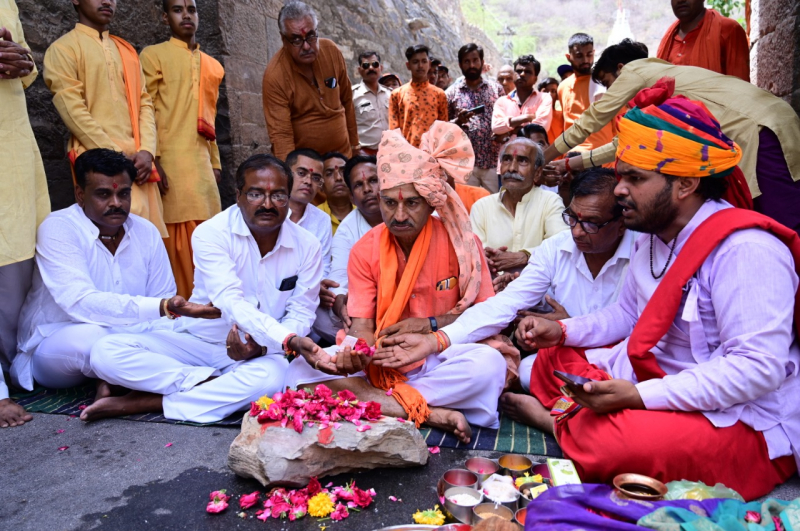
crazy Bollywood News Updates 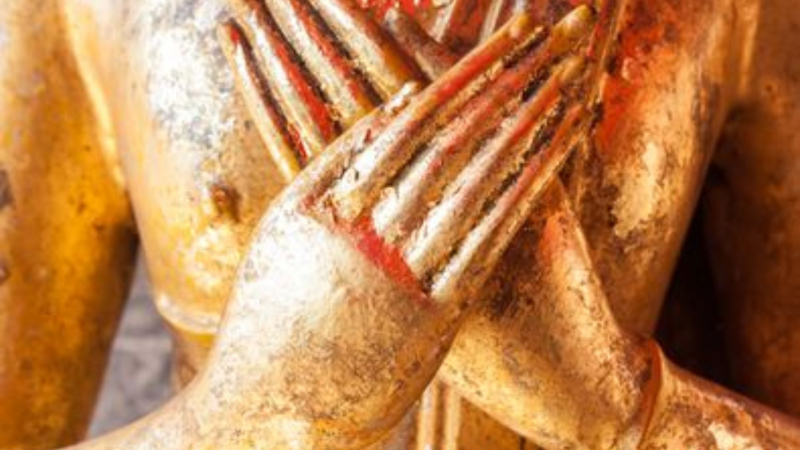
Learn Religions -
"Balance with attention" is one of Swami Sitaramananda's favorite versions of this word. The story goes that you practice in order to become balanced in order to realize your true Self. If you are unbalanced, it indicates that you are extreme in some aspects. You will then fall. Why is being excessive bad? Being extreme in anything has the opposite consequence. You will crumble where you were once powerful. Balance implies that you are good at everything and that you are always focused on the aim of Self Realization. You may occasionally fall a little, go a little sideways, or become a little furious, sad, or attached. But you never really lose yourself, and you never lose your way.
One must acquire the virtues of balance, equanimity, detachment from ups and downs, and liking and disliking. In this manner, your focus is always on the goal. It's akin to staying balanced on one foot in the tree stance. To balance in the tree stance, your eyes must be fixed on a distant place. You might lose it if someone compliments you. You might lose it if someone criticizes you. You must keep your attention on the goal and not become distracted by praise or criticism, in good or bad times. This is known as "balancing with attention," "focus on the aim," or "equanimity practice."

Sivananda Yoga Farm 
Moyra Mackie



























